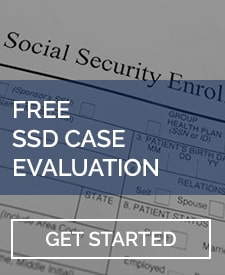Struggling with a disability that prevents you from working is difficult enough. Applying for and receiving a Social Security disability adds yet another layer of complexity and frustration. Now imagine that this situation is compounded by another factor: you are involved in an accident. Receiving a personal injury settlement is key in covering expenses as you recover – but what does it mean for your SSD benefits?
If you find yourself asking this question, consult an SSD benefits attorney immediately. And read on for information that can help you navigate this challenging time. Contact the Personal Injury Attorneys at the LaBovick Law Group.
Yes, No, Maybe
First, let’s clear up a common source of confusion that will help us answer your questions. There are two types of benefits distributed by the Social Security Administration (SSA) for individuals with disabilities:
- Social Security Disability (SSD): This program is intended for disabled people who have worked and paid into the Social Security trust (deducted from paychecks by the employer or paid by self-employed people when they do their taxes). To receive benefits, you must meet SSA requirements for length of work time and credits accrued.
- Supplemental Security Income (SSI): This is a needs-based program for disabled, blind, aged, and low-income people.
*While not common, some people receive both SSD and SSI.
If you have a condition that led to a personal injury settlement, money is a major concern. You are not able to work; you have bills to pay, and you may have medical expenses to cover.
Here is some good news… If you receive Social Security Disability benefits, they are not affected by a settlement. SSD is based on your work history, not on your financial circumstances.
If you receive SSI, though, your benefits will most likely be affected, particularly if your settlement is large. Remember, SSI is based on your income. A payout will typically cause a reduction in your benefits or render you ineligible for this program.
What If I Get Workers’ Comp?
People with SSD are able to gain employment, as long as they follow the restrictions set forth by the SSA. What if, instead of a personal injury settlement, you receive workers’ comp?
You can continue receiving SSD and workers’ compensation if:
- The combined total benefits are less than 80 percent of your average current earnings.
- The combined total benefits are less than your family’s Social Security benefits (pre-reduction).
This can get complicated; please consult an SSD benefits attorney to ensure you understand the ins and outs of how workers’ comp can impact your Social Security benefits.
Worried About Medical Benefits?

If you are struggling with both a disability and an injury related to an accident or negligence, money is certainly front and center in your mind. Doctor’s visits, prescriptions, procedures, therapies, driving to and from appointments… all of that are incredibly expensive.
Will a personal injury settlement impact your medical benefits? Again, yes and no. It depends on which type of coverage you have. Again, there are two major programs:
- Medicare: This program is intended for those aged 65 and older, as younger individuals who receive SSD (if they have been receiving those benefits for 24 months or more).
- Medicaid: A needs-based program, Medicaid delivers benefits for low-income people and covers children, the elderly, blind, and/or disabled people.
If you receive Medicare, your eligibility has already been determined by your age and/or status as a recipient of SSD. A settlement will not impact these benefits. They may, however, affect your premiums. Be sure to report your settlement.
Because Medicaid, however, is a needs-based program, your benefits may be affected. If your settlement is paid in a lump sum, you have to report it to your caseworker within 10 days. They may reduce or discontinue your coverage. In some cases, they may even seek reimbursement for the benefits you have already received. (And, be aware, SNAP Food Assistance and subsidized housing assistance may also be affected.)
What is a “Special Needs Trust”?
If you receive Social Security Disability and/or Supplemental Security Income and have a personal injury settlement to add to the complex mix, consult with an SSD benefits attorney. Protecting your rights, and your physical, psychological, and financial wellbeing, is the top priority.
The loss of SSI income can be catastrophic; it is astonishing how quickly expenses can overwhelm even a large settlement. When you work with an experienced attorney, they can help you create a settlement plan that includes a special needs trust (SNT).
An SNT is designed to allow disabled individuals to place money within a secure trust to cover their needs, particularly those associated with medical expenses. By doing so, you may be able to remain eligible for SSI.
Your trust does not cover expenses related to food, housing, or clothing. It is important that you contact your lawyer to ensure that your trust is structured correctly and that you have access to the funds you need.
The Bottom Line
If you receive SSD and are going to win a large personal injury settlement, you likely will not lose those essential benefits. Other forms of assistance may be impacted, however. To ensure that you retain all of the help to which you are entitled, contact an SSD benefits attorney at the LaBovick Law Group. Our lawyers can help you navigate the complex process with greater confidence – and more favorable results. Contact us today!





